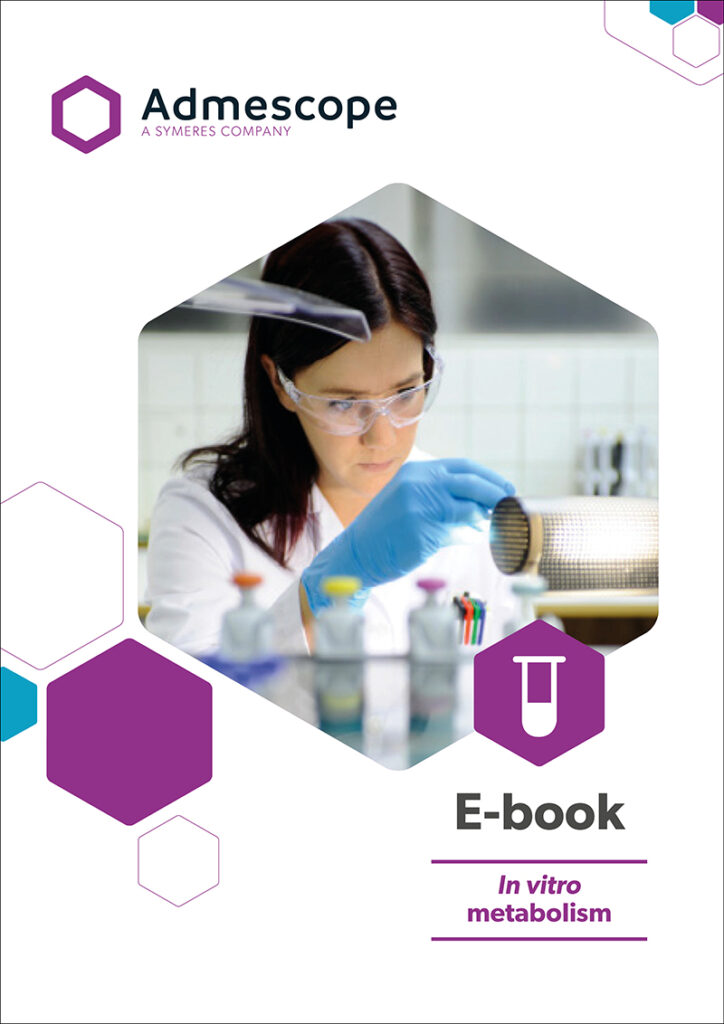
In vitro Metabolism
The aim of the first e-book in our ADME-Tox e-book series is to help readers understand the importance of ADME studies in drug discovery and development, and to shed light more closely on drug metabolism studies. In the pages of this book, you will learn the key ideas and concepts needed to conduct in vitro metabolism studies in a high-quality manner. Normally for a drug candidate to reach clinical research phase, a series of compounds must be subjected to a battery of in vitro and in vivo tests to weed out the ones with poor pharmacokinetic / pharmacological qualities. This book covers the most essential in vitro metabolism studies, such as metabolic stability and metabolite profiling & identification, and even goes into detail about chemically reactive metabolite characterisation. In addition to incubation conditions for these studies, the most applied analytical methods are also discussed in detail, and instructions are given on how to use the data from in vitro studies to predict in vivo pharmacokinetics.
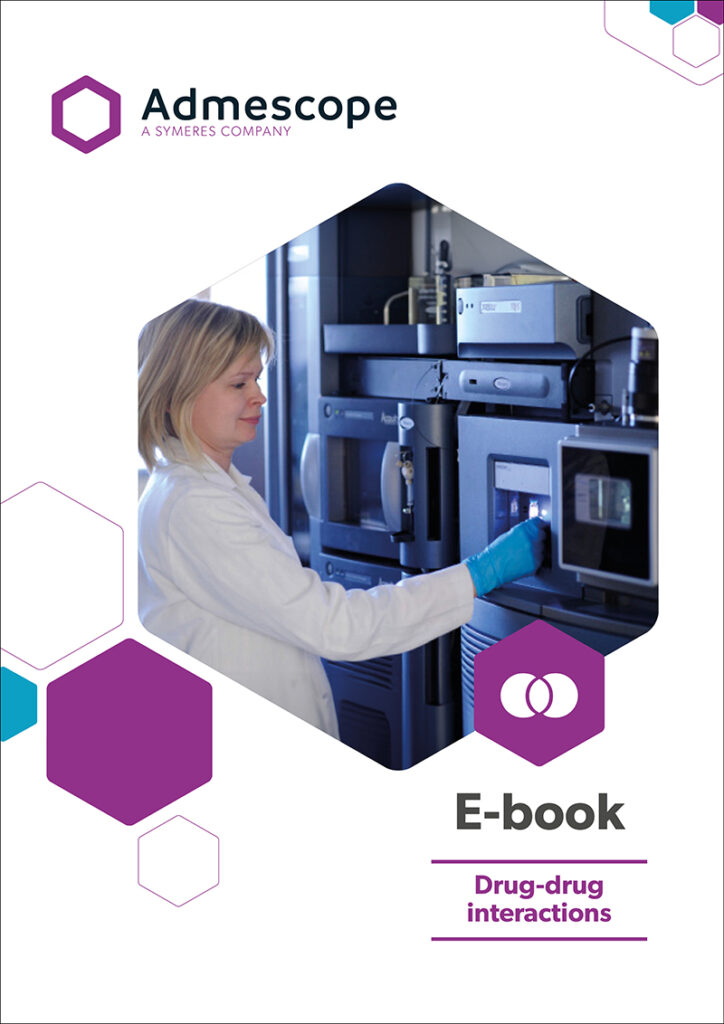
Drug-drug Interactions
The second book in our e-book series introduces us to the inevitable by-product of polypharmacy; drug-drug interactions (DDI), which can be divided into pharmacokinetic and pharmacodynamic interactions. As the emphasis on current regulatory guidance is on pharmacokinetic interactions and more precisely on metabolic interactions, the book focuses on enzyme inhibition and induction studies. It is important to understand the underlying mechanics and differences between enzyme inhibition subtypes, to be able to set up proper incubation methods and to interpret the results correctly. Therefore, this book gives an overview on inhibition kinetics alongside a comparison between the enzyme sources most often used in CYP inhibition studies. Enzyme induction is addressed in the book from CYP point-of-view as CYP induction is the most studied form of induction in drug metabolism and is required by regulatory authorities. The book also covers in vitro to in vivo extrapolation of CYP inhibition and induction, and familiarises readers to different types of models used for DDI prediction.
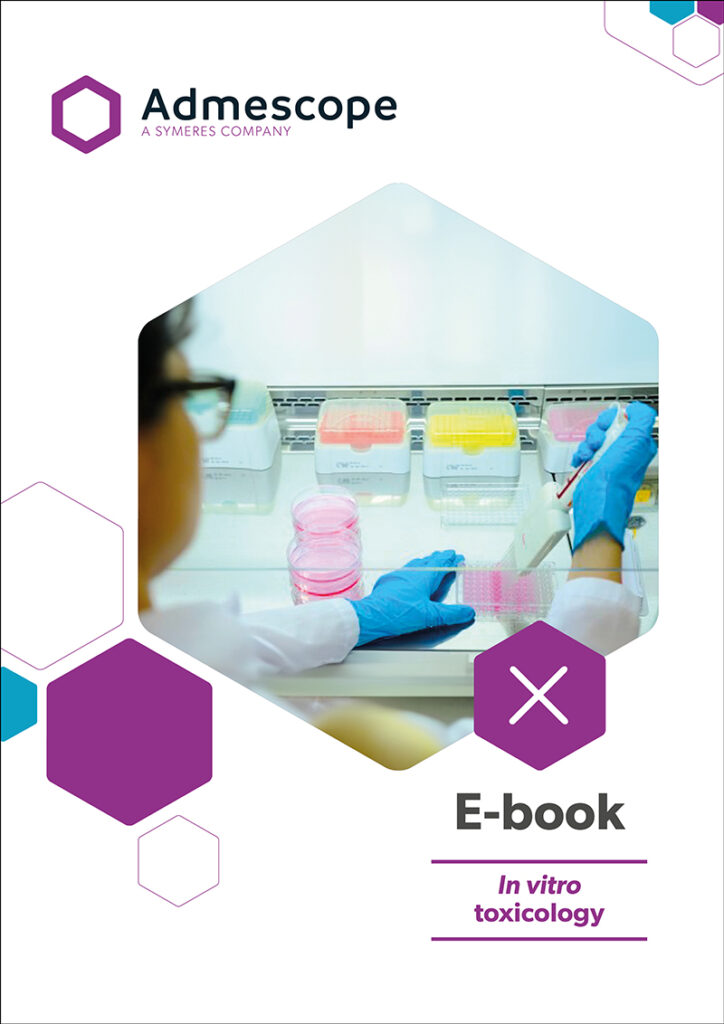
In vitro Toxicology
Drug-induced toxicity is one of the major reasons for discontinuation of drug development projects or even drug withdrawals. Terminating a drug development project due to toxicity in later phases is expensive and to avoid late-phase project failures, several in vitro toxicology screening tests can be conducted already in the drug discovery phase. Our third e-book in the series introduces readers to the most common forms of toxicity encountered in drug discovery and development, such as, hepatotoxicity, cardiotoxicity and genotoxicity, and what screening tests can be used for each type. These tests include cell viability & cell death assays for cytotoxicity, hERG Predictor assay for cardiotoxicity and AMES assay and micronucleus test for genotoxicity. The book also gives a brief overview of other forms of toxicity; steatosis, phospholipidosis and cholestasis. In addition, the book also takes a glance at exploratory toxicity models which have been developed to address the limitations faced with traditional in vitro assays.
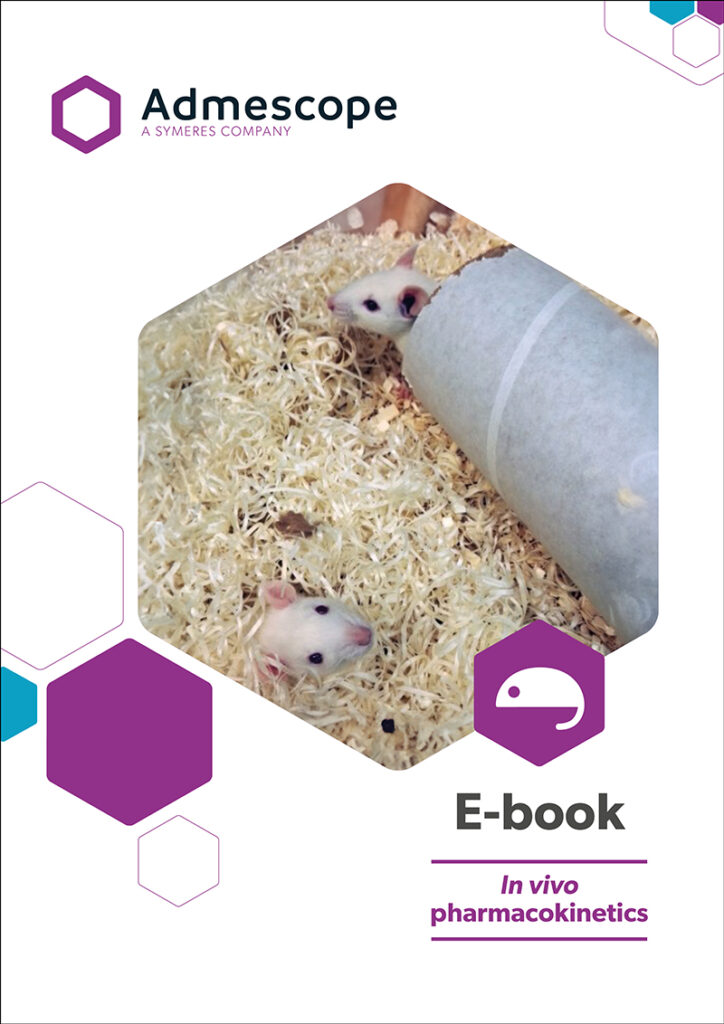
In vivo Pharmacokinetics
Prior to clinical trials, new drug molecules are examined and tested using in silico and in vitro approaches to weed out the ones with unwanted characteristics, such as low efficacy, toxicity or problematic pharmacokinetics. Even though the development of these approaches has progressed enormously in the last few years, they are still not advanced enough to replace in vivo animal studies. This e-book explains the rationale of performing in vivo pharmacokinetic studies and describes common experimental set-ups supporting drug development. The aim of these studies is usually to evaluate whether the drug candidate can be absorbed via oral administration (bioavailability) or to determine other pharmacokinetic parameters, such as, clearance, half-life, volume of distribution, etc. These parameters can be used, e.g., for comparison of compounds for selecting a lead candidate, or for predicting safe starting dose in clinical trials. Not even perfectly planned and performed in vivo study is of any use if you can’t analyse your samples reliably. Therefore, a large part of this book is dedicated for the analytical aspects of biosamples, mainly from LC/MS perspective.
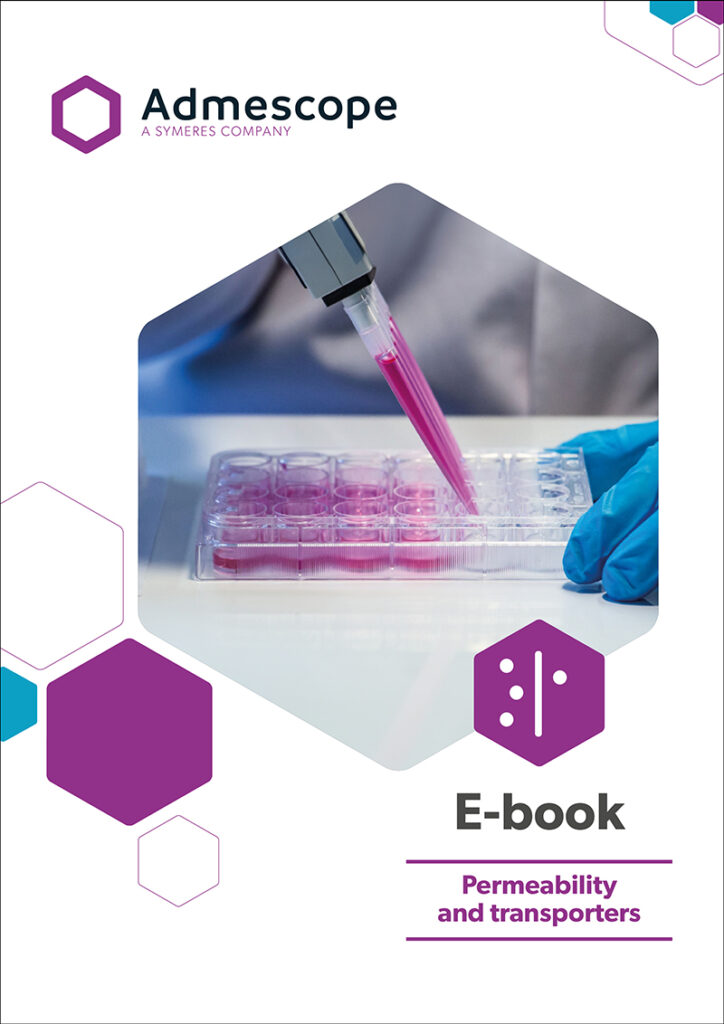
Permeability and Transporters
Permeability is one of the key factors determining how a drug is absorbed, distributed and eliminated. Most conventional small molecule drugs permeate through cell membranes via passive diffusion or are actively transported by transporter proteins. The function of these drug transporters can be affected by co-administered drugs, and thus transporter studies should be included in drug-drug interaction evaluation. Our fifth e-book explains the fundamental differences between passive drug permeation and active transportation and the clinical relevance of these phenomena. The most relevant drug transporters, divided into efflux and uptake transporters, are listed in the book alongside with brief assay descriptions on how to study their functions for evaluating drug-drug interaction risk. To book also describes how basic permeation studies can be conducted utilising Caco-2 or MDCKII cell monolayers.
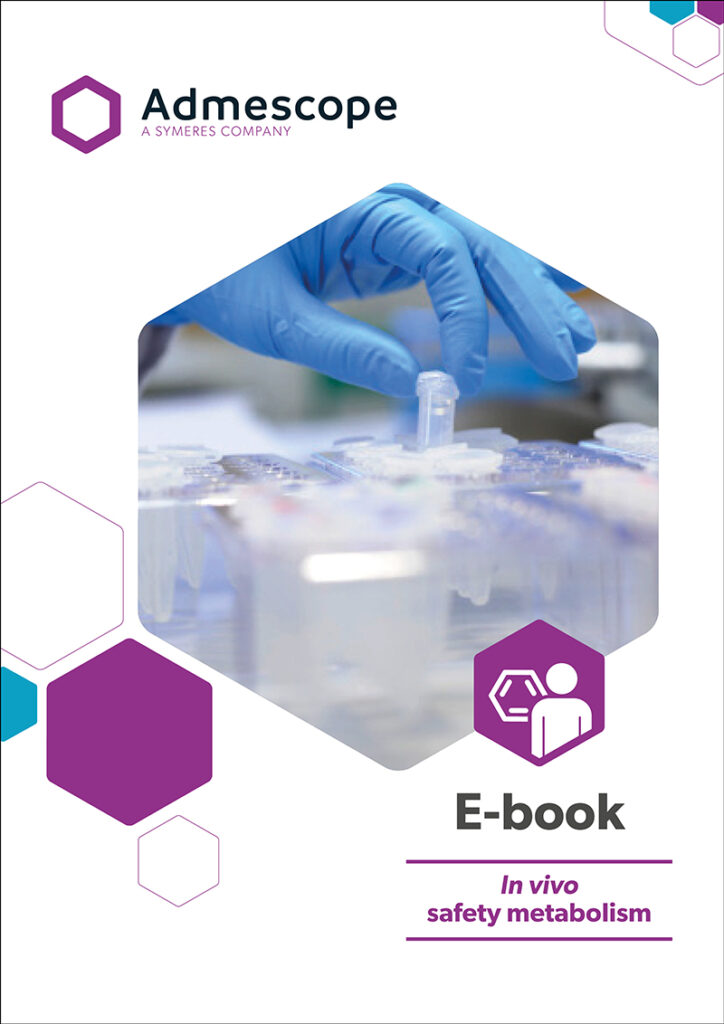
In vivo Safety Metabolism
In addition to the safety of the parent drug, the safety of drug metabolites must be demonstrated. The metabolites in safety testing (MIST) concept addresses the questions how to identify potential safety issues caused by drug metabolites and is the topic of our sixth e-book. As the drug metabolites might have toxic effects, a concern arises if the metabolite is present only, or at disproportionately higher levels, in humans than in the animals used in the non-clinical toxicological studies. This e-book introduces the general principles of the safety metabolism work. In addition, why and when the work should be initiated and what should be considered when planning the studies are discussed. The tools to demonstrate the safety of drug metabolites or to identify potential safety issues, such as MIST analysis and radiolabeled metabolite in vivo Met Id and profiling, are covered by the e-book.
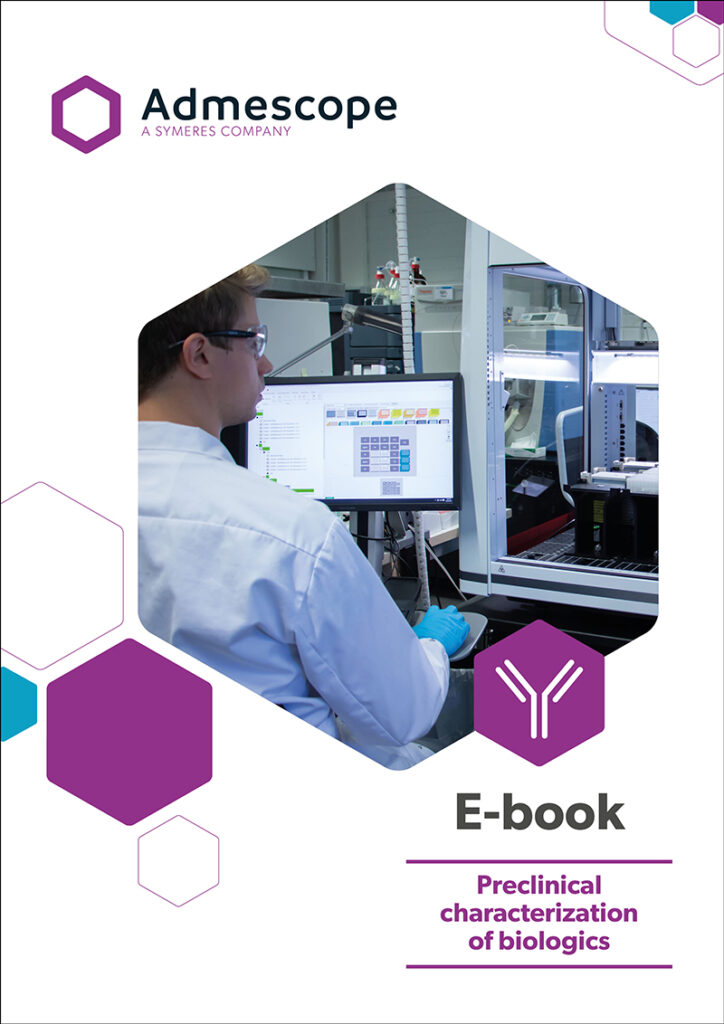
Preclinical Characterization of Biologics
The previously published e-books were focusing on small molecules. However, during the last decades the number of biologics in drug discovery and development projects has been increasing. The size and complex structure introduces some challenges for the biologics characterisation and similar methodology cannot be typically applied, compared with the small molecules. Comprehensive understanding the molecular structure forms crucial foundation for the development of biologics. The seventh e-book introduces preclinical characterization of biologics to the reader.
